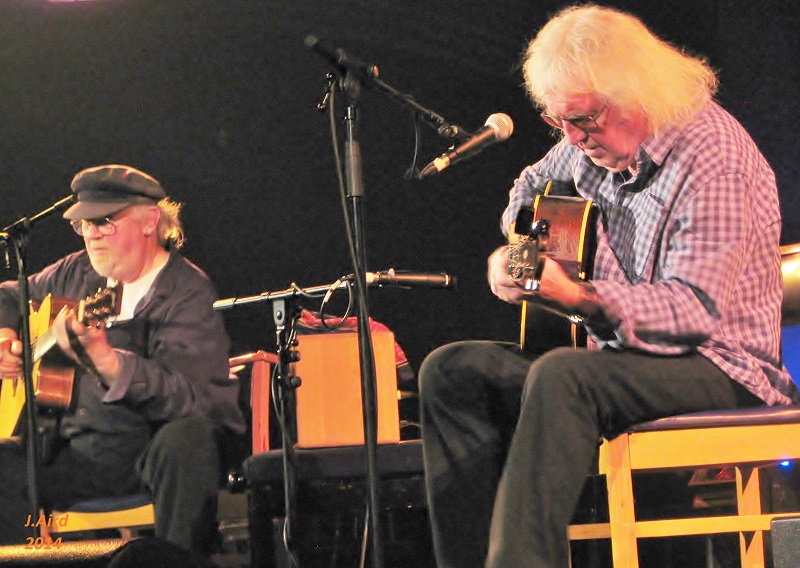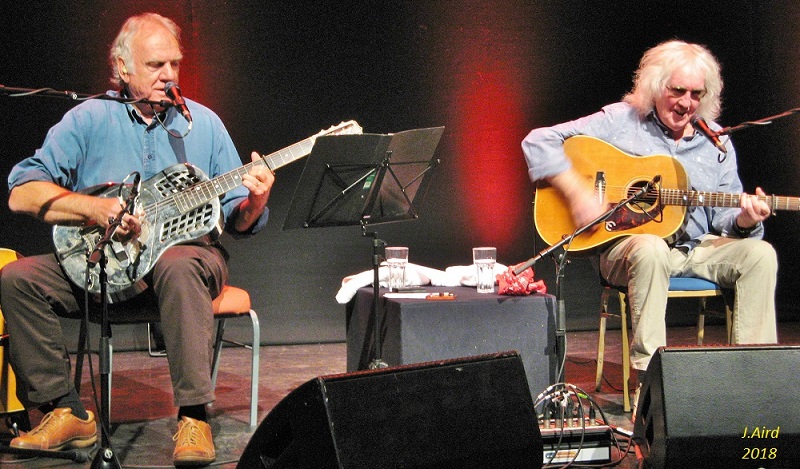
Bert Jansch, John Renbourn, Davey Graham…the great guitarists of the British folk boom of the 1960s are leaving us one by one and now, sadly, we have to add Wizz Jones to that number. Very much the first of that generation and an inspirer of all those listed, as well as Ralph McTell and a certain Keith Richards. Wizz Jones (born Raymond Ronald Jones) played folk and blues and country-ish songs, he’d make his guitar boom, and his voice would rise above it, conveying the emotion of the song. His song choice – he often covered other people’s compositions – process was quite simple, he had to like and connect with the song. He was a frequent recorder of the songs of Alan Tunbridge, story songs with great imagery. His own compositions tended to declarations of love, familial contentment, and autobiographical remembrances of his early years – ‘Burma Star‘ epitomised this as it traversed the emotional pitfalls of growing up in the Second World War with an absent – and at one point thought dead – father whose eventual return and inability to reconnect with civilian life was itself a wellspring of mixed emotions. It’s also a song that glows with understanding and acceptance.
Wizz Jones made his start busking in London and Paris and was part of the early bohemian drift to Cornwall, where he found Summer work as a regular musician in pubs, as well as taking part in reputedly raucous evenings in The Folk Cottage – a folk club in a barn with no bar or, it would appear, safety regulations. Although playing finger-picked guitar and a mix of folk and blues and a bit of bluegrass, he was regarded as being somewhat outside the mainstream folk scene of the time; the rigidity of the scene at the time was captured in JP Bean’s book of interviews ‘Singing from the Floor‘ where hard to believe, Wizz recounted how folk clubs would turn people away if they were “scruffy.”
Wizz Jones was a mainstay on the folk scene for decades, but he never achieved the same heights as some of those he inspired and mentored. Despite starting his musical career in the late 1950s, it wasn’t until 1969 that he made his first recording – putting him a full four years behind the debut releases from John Renbourn and Bert Jansch. And although he maintained a steady output throughout the 1970s there was no breakthrough hit song to propel him to a wider public. But everyone who played folk and acoustic blues guitar knew him, and albums such as 2001’s “Lucky The Man” featured musicians such as Gerry Conway, Clive Palmer, John Renbourn and Jacqui McShee. In 2012, there was an “almost” moment when Bruce Springsteen played ‘When I Leave Berlin‘ at a concert attended by 55,000 people in that city during a period when travel from East Berlin had been made easier – it can be found on YouTube – but as Wizz would recount before playing the song himself, Bruce had committed the ultimate folk faux-pas in not crediting the songwriter.

In later years he memorably toured with long-time collaborator John Renbourn – with the duo finally putting out an album “Joint Control.” After John Renbourn died, moving-on Wizz Jones continued as a solo performer and also toured with Ralph McTell in support of their albums “About Time” and “About Time Two” named because they’d always said they ought to do something together, and they finally had.

After the initial shock of hearing of his passing at the age of 86 it’s actually difficult to recall Wizz Jones sadly. The following quote from a review of a joint appearance with Ralph McTell explains why: “Wizz seems to inspire a certain pleasantly ramshackle element in a gig no matter who he is appearing with. Serious – in the sense of well played and sung but still with some room for fun!” It gave your current scribe infinite pleasure that Wizz chose to highlight that quote on his own website.
Wizz Jones, 25 April 1939 – 27 April 2025, one of the best.



Excellent obituary for a particularly fine musician.